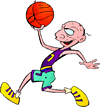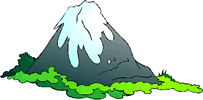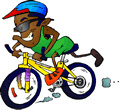|
1. Give the most suitable unit for measuring:
| (a) The weight of a big fish. |
 |
| (b) The distance from London to Paris. |
| (c) The amount of petrol in a car. |
| (d) The distance around a running track. |
| (e) The width of a school text book. |
2. Using the set of units {cubic centimetres, litres, square centimetres, metres, kilograms}
choose the most suitable unit to measure:
| (a) The height of a person. |
 |
| (b) The volume of a person's hand. |
| (c) The weight of a person. |
| (d) The total area of a person's finger nails. |
| (e) The amount of blood in a person's body |
3. Using the set of units {kilometres, millimetres, metres, centimetres} choose the most suitable unit to measure:
| (a) The length of this page. |
 |
| (b) The thickness of a piece of cardboard. |
| (c) The height of a building. |
| (d) The distance from Mt Taranaki to Mt Ruapehu. |
| (e) The height of a mountain |
|
4. Change to grams:
|
| (a) 28.4 kg |
(b) 0.94 mg |
(c) 6628 cg |
(d) 9.2 hg |
| 5. Change to mL: |
| (a) 6.4 kL |
(b) 62 L |
(c) 0.64 dL |
(d) 8.9 hL |
| 6. Change to km: |
| (a) 6000 m |
(b) 62 Dm |
(c) 0.429 cm |
(d) 462 000 mm |
7. Complete the table:
|
kilometres
|
metres
|
centimetres
|
millimetres
|
| |
6
|
|
|
|
0.4
|
|
|
|
| |
|
80
|
|
8. Convert the following times into 24 -hour clock time:
(a) 2.00 pm
(b) 9.26 am
(c) 1.46 am
(d) 10.54 pm
9. Convert the following 24 -hour clock times into am and pm time:
(a) 2300
(b) 0446
(c) 1752
(d) 0049
10. At 0946 the temperature was 18.4 °C. At 1224 on the same day the temperature had gone up to 32.6 °C.
How long, in hours and minutes, was there between the two temperature readings and what was the difference in temperature?
11. A triathlon starts at 9.40 am
The winner completes the swimming section in 29 minutes.
The cycling leg takes 1 hour and twelve minutes and the running leg takes 49 minutes.
The changeover between each leg takes 3 minutes.
How long does the winner take to complete the event and at what time does he finish? |
 |
|
|
|





